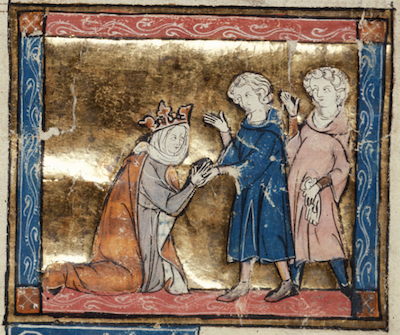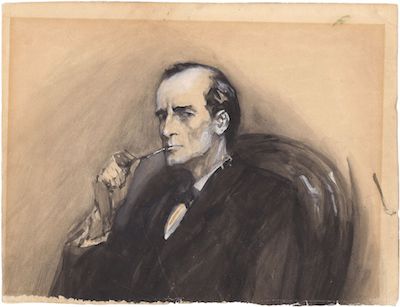I love series. My must-buy list is mainly comprised series books. My eagerness for the next story filled with characters and worlds that I love is intense.
I’m not alone.
Why We Love Them
Genre fiction has been built on series from the beginning. The Sherlock Holmes short stories appeared in Victorian magazines long before they were novels or collections. These stories became so popular that readers actually wore black armbands when Holmes died. (A move that was reversed a few years later, an early example of a reader-demanded retcon.)
People bond to fictional characters and always have. They want more stories about them. In medieval Western Europe, stories about the mythical King Arthur expanded to serve this need, so much that we today find it difficult to separate the fictional from the real-life basis for the legend.

A good series offers readers people they love, a familiar setting, and a promise that they will be entertained in the same manner as the previous books. That’s why worldbuilding is so important. For me, it’s the remembered satisfaction that looms the largest. As readers, we all want to replicate good experiences.
A brand-new story requires us to take a leap into the unknown. It can be done, obviously, as that’s how we find more favorite stories, but this is exactly the reason that publishers look for “comp”: books featuring a similar premise or voice that entice readers toward something new.
Series Build Worlds
Sometimes a series is more than familiar characters. Sometimes it’s familiar settings. And sometimes it’s an entire world constructed over time that becomes so vast it’s actually shorthand for a certain type of story.
In superhero comics, a “Gotham City” story immediately promises a dark mystery. Gotham itself has become a genre. When introducing a new character to readers, DC Comics will connect them to a familiar character like Batman and/or a familiar setting like Gotham. There’s a reason that Batman has a huge fictional family and it’s not because Bruce Wayne is the perfect dad. (That’s Alfred.) It’s because readers buy into the new heroes or villains if they’re tied to Gotham.
In a similar fashion, another genre, romance, has done the exactly same thing with stories set in England’s Regency era. The most fascinating element of this world, however, is that while DC Comics does this deliberately, Regency Romancelandia has been created by the unconscious collaboration of literally thousands of authors.
If a reader picks up a Regency Romance, they know there will be carriages, drawing rooms, a particular set of social rules, and familiar settings, like gentleman’s clubs, Almack’s, or the ever-popular hosted dance. The characters may be new, the author may be new, but the familiar details help pull readers into those new stories.
Readers are fine with the fifty zillion dukes running around Regency Romancelandia because they like stories about Dukes and don’t care if that’s realistic, any more than Batman readers care that Gotham has fifty zillion heroes now and it remains the same terrifying place. Make Gotham a happies place and the stories change. Take away all the Dukes, and the stories change.
However, there’s a problem to all this familiarity.
The Downside of Series Reading
The primary issue for readers with series books is that, eventually, they run out of steam and provide diminishing returns. Or, like Arthur Conan Doyle with Sherlock Holmes, the author themselves are tired of the character,
This demand for more of the same is a publishing problem. too Publishers see how well a series is doing and so they pay the author for more of the same. That makes surface sense except that creativity is not a widget and, eventually, an author can only do so much with their creation. Or want to. Even Michael Connelly’s long-running Bosch mystery series began running out of steam after over 20 years and Connelly has swapped to a new lead character.
Superhero comics sidestep this issue by hiring different creators every year or so. (Or even sooner.) Or they rely on endless reimagining and retcons that change the flavor of the original stories. This has problems, too, however, as anyone who has argued over which actor was the best live-action Batman knows. (For the record, I punt, and go with Kevin Conroy.)
Prose novels, however, usually have a single creator. Doyle eventually wrote other novels but never achieved the same success with them and returned to Holmes. While I’m grateful to have more Holmes stories, I also recognize the wear and tear this must have caused Doyle and many Holmes readers to say the character was not quite the same after his resurrection.
There’s another problem with series as well. They lock our imaginations into one setting and into one world. They often don’t expand our understanding but contract it. Sometimes we don’t need more of the same. Sometimes we need different. Sometimes society needs something different. Rather than new stories being influenced by a series that doesn’t reflect our current society, instead many publishers buy books that are more of the same, in the worst way.
We don’t need another Sherlock Holmes.
We need someone new, in a new world. We don’t need the next Doyle. We need the next innovator.
Be Open to New Worlds
I said at the beginning that I love series but I’ve also learned that while I need to fill that craving, I also need to branch out. The best feeling is finding something new and falling in love with it. That thrill of discovery is even better than the relaxation of something familiar.
After all, that’s the way I find new series.



